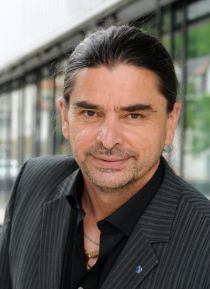For several years, the Global Phosphate Data and Knowledge Hub was engaged in preparations with the Global Phosphate Institute in Morocco to finally begin its research and documentation activities as an independent institute at the University of Continuing Education Krems on 1 August 2022. The Universities' leading research network on sustainable phosphate management, the Transdisciplinary Lab for Sustainable Mineral Resources, now supports the partnership between research and companies in one of the most important international phosphate mining countries.
Phosphorus is an irreplaceable and essential element in all food cycles and, in the form of phosphate fertilizer, a critical resource for agriculture and thus for global food security. There is no life without phosphorus. Thus, all life on earth is limited by the amount of elemental phosphorus. Any fears of a phosphate shortage in the foreseeable future can be dispelled as the available resources will last for a long time to come. Only the global production, distribution and utilization cycles are susceptible to disruption. Basically, to better understand these cycles, it is necessary to have reliable data.
Td-Lab for Sustainable Mineral Resources Starting Point
The Transdisciplinary Lab for Sustainable Mineral Resources emerged from an international and transdisciplinary research network in 2016. The goal it has set itself is to study the data situation on essential mineral raw materials in the interest of global food security and sustainable resource management. The many years of ongoing research and publication on this topic and those related to production chains of essential raw materials show fruitful as Lab’s reputation consolidated internationally and initiated the talks in 2020 on establishing an international data and knowledge center on global phosphate cycles.
About the Global Phosphate Institute
At this time, the Global Phosphate Institute (GPI) was founded by Mohammed VI Polytechnic University (UM6P) and the Ibn Rochd Foundation for Science and Innovation (FIRSI), both based in Morocco, aiming to create a holistic vision of responsible phosphate management. The institute is intended to provide a common platform for discussion between science, politics, industry, media, and educational institutions together with relevant stakeholders. In doing so, solutions shall be found to tackle issues global food security faces following the spirit of the UN's Sustainable Development Agenda 2030. To this end, the creation of a high-quality and reliable scientific database is of paramount importance in the sense of integrity and cooperation as guiding values of the GPI.
Positive, encouraging response
The University for Continuing Education Krems and the Global Phosphate Institute will further elaborate its cooperation to make data available based of an existing, high-quality collection and proven expertise. Prof Gerald Steiner, Dean of the Faculty of Business and Globalization at the University for Continuing Education Krems, introduced the cooperation at the UN World Food Organization (FAO) Global Symposium on Soils for Nutrition, held from 26-29 July 2022. His presentation on " Status and Challenges of Phosphorus. Reserves for Agriculture: A Matter of Quantity and Quality", led to a great response and an encouraging interest in future cooperation. An in-depth, scientific analysis of global challenges is all the more important in times of imminent upheavals in the global food markets due to current political events. This will help to enable targeted interventions in the interest of sustainable food security for all people.
Contact
Tags
